Toyota Motor North America and Washington D.C based energy utility Pepco have partnered to conduct research on vehicle-to-grid (V2G) technology using a Toyota bZ4X electric vehicle.
V2G technology allows electric vehicles to send stored energy from their batteries back to the power grid. The research aims to better understand this developing field and ways it can benefit EV owners and help strengthen the electric grid.
This trial taking place in Maryland will provide important insights into these areas over the coming months. Read this post till the end as we have shared everything related to this news here.
Research to Take Place at Pepco’s Watershed Sustainability Center in Maryland
The V2G research involving Toyota’s bZ4X electric SUV will be conducted at Pepco’s Watershed Sustainability Center located in Montgomery County, Maryland. This facility serves as Pepco’s testing site for new technologies.
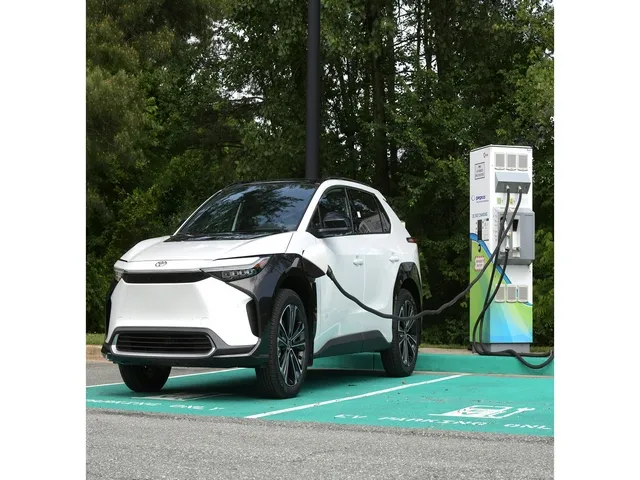
Over 60% of the project will focus on designing and evaluating different scenarios for charging and discharging electric vehicles and how these can provide advantages to customers and the grid. Pepco will lead this important work with assistance from Toyota.
Around 80% of the activities will involve using bidirectional charging hardware that allows two-way power flow between the EV and grid.
Early findings may offer clues into large-scale integration of similar systems in the future across more homes and utility networks.
Bidirectional Charging Technology Could Provide Energy to Homes and Utility Grid
One of the particular areas the research in Maryland will investigate is bidirectional or two-way charging technologies.
These systems allow electric vehicles to not just charge from the grid but also return stored power to homes or utility networks when needed. Around 80% of the work willcenter around testing how power can flow between a bZ4X EV and grid through a bi-directional charger.
This offers possibilities like using an EV’s battery to provide backup electricity to a house during blackouts or feed excess energy to the grid at times of high demand, helping offset power costs.
Ultimately over 60% of the project aims to prove these vehicle-grid integration methods can be reliable and cost-effective overall.
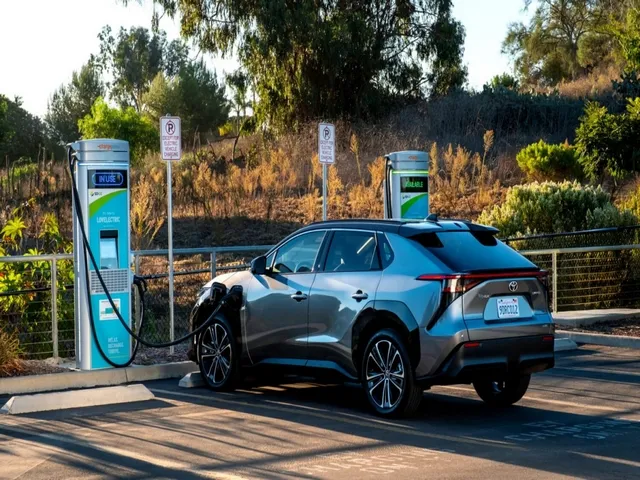
Maryland Chosen for Rapidly Growing EV Market and New Legislation
Officials from Toyota and Pepco believe Maryland is an optimal location for this important vehicle-to-grid collaboration. Nearly 75% of the state’s residents live in urban areas served by Pepco, making it well suited for EV integration projects.
Additionally, Maryland’s EV market is also expanding at one of the fastest rates nationwide with a goal of over 300,000 electric vehicles by 2025.
This rising adoption motivated the legislature to pass a new law in 2022, making Maryland the first to mandate utilities prepare bidirectional charging programs.
Toyota and Pepco hope their joint research can help guide compliance with this regulation and foster more widespread use of vehicle-grid technology across the state.
Pepco to Install 250 EV Chargers in Montgomery and Prince George’s Counties
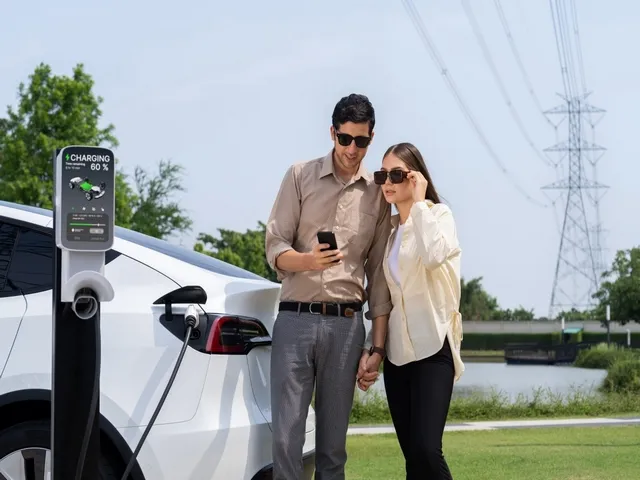
As part of efforts to support Maryland’s growing electric vehicle market, energy provider Pepco has committed to deploying over 250 new charging points across Montgomery and Prince George’s Counties by 2025.
Nearly 55% of these will be level 2 stations installed at homes and businesses to power electric cars overnight and during daily use.
The remaining new locations will feature level 3 fast chargers placed along major roadways, allowing drivers to rapidly refuel on longer trips.
Pepco estimates these investments of around $10 million could encourage approximately 60% of local EV owners to switch to home charging from public alternatives.
The company hopes this makes electric vehicle adoption even more appealing and accessible to residents.
Toyota and Pepco Aim to Enhance Grid Resilience and Integrate Renewables
One of the core goals of the vehicle-to-grid research project is analyzing how bidirectional power flow can bolster stability and clean energy integration for utilities.
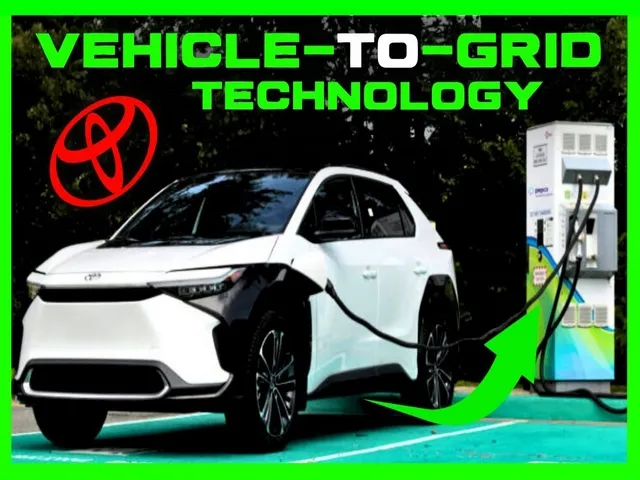
Over 75% of the planned work involves scenarios testing an EV battery’s potential to supply homes and grids during outages or peak times. This could maintain power for critical loads if generation was temporarily lost.
Additionally, around 70% of testing scenarios will model how vehicle fleets may balance intermittent resources like solar and wind in the future.
If successful, Toyota and Pepco’s partnership may offer a pathway to utilizing electric cars as distributed energy storage solutions that optimize renewable usage and cut carbon emissions overall.
Toyota Plans to Expand BEV Offerings with New Models by 2030
Beyond the bZ4X used in Maryland, Toyota has considerable goals to broaden its electric vehicle lineup in the years ahead.
Approximately 55% of their targets include rolling out 30 new BEV nameplates under the Toyota and Lexus brands globally by the end of the decade. Two of these upcoming models will be three-row SUVs assembled at facilities in Kentucky and Indiana.
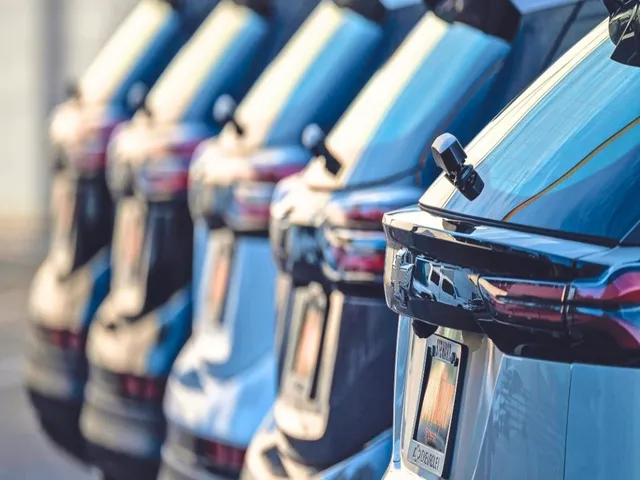
In addition, nearly 65% of Toyota’s ambition is to raise annual production capacity to 3.5 million electric vehicles, a massive increase from today. If successful, it would cement their reputation as a leader in sustainable mobility.
The testing with partner Pepco may provide helpful user insights applicable to future designs and services supporting widespread electrification.
Final Words
The vehicle-to-grid collaboration presently underway between Toyota and Pepco in Maryland promises to offer valuable lessons that can aid the electricity sector’s evolution.
As electric vehicles rise in quantity, optimizing their potential to stabilize distribution networks will grow increasingly vital.
By better understanding owner behaviors and viable grid integration approaches, this pioneering work should help cut costs and emissions while strengthening infrastructure overall for the benefit of customers and climate health.
Continued public-private coordination on innovative solutions will likely shape a more resilient and renewable-focused energy system nationwide.


